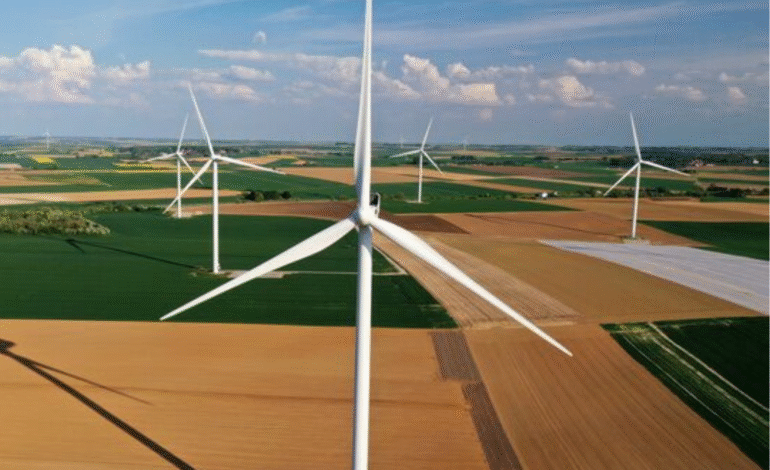Indonesia & Singapore’s $10B Green Energy Initiative

Indonesia and Singapore have taken a significant step toward advancing regional sustainability by agreeing to invest more than US$10 billion in green energy projects. This landmark cooperation underscores their shared commitment to transitioning toward environmentally responsible energy solutions amid the growing global urgency to combat climate change.
Historic Partnership Reflects Strong Clean Energy Commitment
The collaboration was formalized through the signing of three memorandums of understanding (MoUs), signaling both countries’ intent to deepen their cooperation in clean energy development. Indonesia’s Minister of Energy and Mineral Resources, Bahlil Lahadalia, highlighted the mutual benefits of this agreement, noting how it can bolster economic ties while advancing sustainable growth.
The substantial investment will be allocated across several strategic areas. These include establishing a solar panel supply chain, developing and patenting carbon capture and storage (CCS) technologies, and creating green industrial zones designed to foster low-emission manufacturing, technology, and logistics operations.
Expanding Solar Energy Capacity to Meet Growing Demand
A key focus of the investment is on large-scale construction and deployment of solar panel systems. Given Southeast Asia’s abundant sunlight, solar energy represents a vital component in diversifying the region’s energy mix and reducing reliance on fossil fuels.
By building a comprehensive solar panel supply chain locally, both countries aim to stimulate domestic manufacturing capabilities and reduce dependence on imports. This approach is expected to improve affordability and accessibility of solar solutions, encouraging broader adoption. The solar industry’s growth will also generate significant employment opportunities, from manufacturing roles to operations and maintenance across Indonesia and Singapore.
Advancing Carbon Capture and Storage Technologies
Another cornerstone of the initiative is the advancement of CCS technologies, which play a crucial role in mitigating industrial carbon dioxide emissions. CCS works by capturing CO2 before it is released into the atmosphere and securely storing it underground or repurposing it for industrial use.
Through joint development and patenting efforts, Indonesia and Singapore aim to become regional leaders in carbon management technology. Establishing CCS facilities will not only support environmental goals but also create new avenues for technological innovation, industrial services, and skilled employment.
Green Industrial Zones to Promote Sustainable Industry Practices
The investment plan also includes the development of green industrial zones—dedicated areas where industries operate with a focus on sustainability. These zones integrate renewable energy use, energy-efficient technologies, and waste reduction measures across manufacturing, technology, and logistics sectors.
Such industrial zones encourage environmentally responsible business practices, reduce emissions, and enhance the competitiveness of green industries. By attracting sustainable investments, these zones contribute to economic diversification and help both countries position themselves at the forefront of green industrial development in the region.
Economic Growth and Job Creation Alongside Environmental Benefits
Beyond environmental impact, the US$10 billion investment is projected to deliver significant economic advantages. Minister Lahadalia outlined expectations of thousands of new jobs emerging throughout the green energy value chain, including solar panel production, battery energy storage systems (BESS), and facility operations and maintenance.
Financially, the project is forecasted to increase foreign exchange revenues by up to US$6 billion annually, strengthening economic stability and supporting public finances. Furthermore, increased tax revenues generated from growing business activities and employment will enable governments to reinvest in further sustainable development projects.
Regional Impact and Leadership in Sustainable Development
This cooperation exemplifies how regional partnerships can play a pivotal role in addressing climate change while promoting economic progress. With Southeast Asia’s expanding economies and energy needs, balancing growth with environmental stewardship is critical.
Indonesia and Singapore’s commitment positions them as leaders in clean energy adoption and climate mitigation within the region. Their efforts could inspire neighboring countries to pursue similar collaborations and accelerate the region’s overall energy transition.
Moreover, this initiative aligns with global climate objectives, such as the Paris Agreement, by advancing significant reductions in greenhouse gas emissions and promoting sustainable industrial practices.
Challenges and Prospects for Success
While promising, the success of these initiatives will depend on overcoming several challenges. Scaling up solar infrastructure requires careful management of technical, financial, and regulatory aspects to ensure reliability and cost-effectiveness.
Similarly, CCS technology must address issues related to scalability, storage safety, and operational costs. Ongoing research, innovation, and stringent oversight will be vital to fully realize CCS potential.
Implementing green industrial zones demands coordinated policy frameworks and incentives to attract investments and maintain sustainability standards. Effective collaboration among governments, private sectors, and communities will be essential.
Despite these hurdles, the integrated approach opens numerous opportunities for industrial modernization, technological advancement, and sustainable economic growth.
Building a Sustainable Energy Future Together
The over US$10 billion investment agreement between Indonesia and Singapore represents a decisive step toward a greener, more sustainable future in Southeast Asia. By advancing solar energy infrastructure, carbon capture technologies, and green industrial zones, the two countries are fostering an economic ecosystem that balances growth with environmental responsibility.
Their collaboration serves as a model for regional and global partnerships aimed at tackling climate change while promoting development. The initiative’s focus on innovation, job creation, and economic benefits underscores the potential for clean energy to drive prosperity.
As these projects move forward, successful implementation will require strong governance, continued innovation, and sustained cooperation. If effectively managed, this partnership could significantly transform the energy landscape in Indonesia and Singapore and set a powerful example for the wider region’s sustainable energy ambitions.








1 Comment
[…] Indonesia is reshaping its global economic narrative by offering the United States a significant and strategic trade concession. In a decisive move, the Southeast Asian giant has proposed to reduce import duties on major US exports particularly wheat, soybeans, petroleum gases, and Boeing aircraft to near-zero levels. This generous offer forms part of an expanding effort to rebalance and strengthen US–Indonesia trade relations and comes at a crucial moment when the global supply chain is in flux and food security remains an ever-pressing concern. […]
Comments are closed.